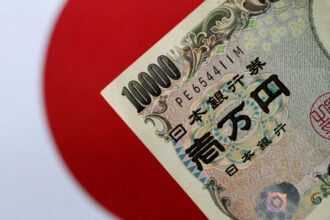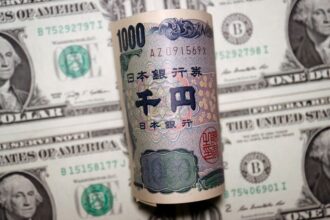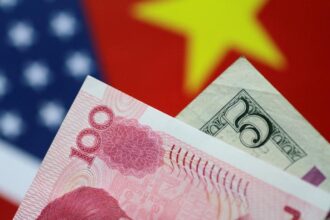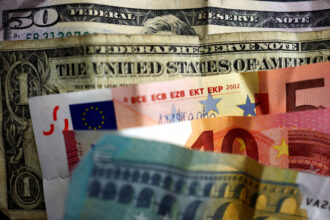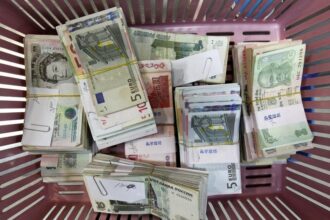By Rae Wee
SINGAPORE (Reuters) – The yuan strengthened on Tuesday after China’s top leaders pledged to step up policy support for the country’s flailing economy, while the euro briefly hit a two-week low as a worsening business downturn muddied the euro zone rate outlook.
The yuan surged more than 0.5% in both the onshore and offshore markets in Asia trade as investors cheered comments at the closely watched Politburo meeting, though many were still seeking out specific details on greater stimulus measures.
The last bought 7.1540 per dollar, while the stood at 7.1535 per dollar.
“Overall, the sheer range of issues that the meeting touched upon goes beyond what the markets had anticipated,” said Tommy Xie, head of Greater China research at OCBC.
“While the sweeping breadth of the topics was appreciated, the execution and depth of these policies will be the real test.”
Also propping the yuan were China’s major state-owned banks selling U.S. dollars to buy yuan in both onshore and offshore spot markets on Tuesday, sources told Reuters.
The positive sentiment from China also lifted the Australian dollar, which is often used as a liquid proxy for the yuan.
The was last 0.3% higher at $0.6760, while the rose 0.1% to $0.6210.
Elsewhere, the gained 0.12% to $1.1075, after slumping to a two-week low of $1.1059 earlier in the session, on the back of a survey on Monday which showed euro zone business activity shrank much more than expected in July.
That reignited recession fears and caused the single currency to slide more than 0.5% in the previous session, as traders trimmed their expectations of future rate hikes by the European Central Bank following this week’s likely 25-basis-point increase.
“The extension of the weakness in the manufacturing sector as well as services, and Germany, in particular, being a lot weaker than expected … that’s putting some question marks around the rhetoric that we should expect from the ECB on Thursday,” said Rodrigo Catril, senior currency strategist at National Australia Bank.
gained 0.12% to $1.2840, while the fell 0.14% to 101.27.
Britain’s flash PMI survey out on Monday showed its private sector growing at the weakest pace in six months in July, while a separate survey pointed to U.S. business activity slowing to a five-month low this month.
The Federal Reserve also meets this week and is expected to raise rates by 25 bps, with a majority of economists polled by Reuters expecting that to mark the last increase of the central bank’s current tightening cycle.
“While the Fed meeting (in July) is likely to be uncontroversial in terms of the decision on interest rates, the Fed’s statement and the press conference will be extremely relevant for markets,” said Guillermo Felices, global investment strategist at PGIM Fixed Income.
“Incoming activity data has been stronger than expected in June and July,” he said. “The Fed will have to explain what they make of the resilient U.S. economy.”
In Asia, the remained under pressure at 141.40 per dollar, struggling to recover from its heavy losses on Friday on a Reuters report that the Bank of Japan (BOJ) is leaning towards keeping its yield control policy unchanged at this week’s policy meeting.
“(BOJ) Governor Ueda has held his cards close to his chest, seemingly unpersuaded by the recent run up in Japanese prices and especially workers’ wages, and he has dropped few hints about an impending YCC tweak,” said Aninda Mitra, head of Asia macro and investment strategy at BNY Mellon Investment Management.
“However, we feel the time is ripe to undertake a YCC tweak… A YCC tweak is not full-scale pivot to policy tightening, but it sets the stage for reduced policy divergence. As such it would result in an abatement of pressure on the yen.”
Read the full article here





